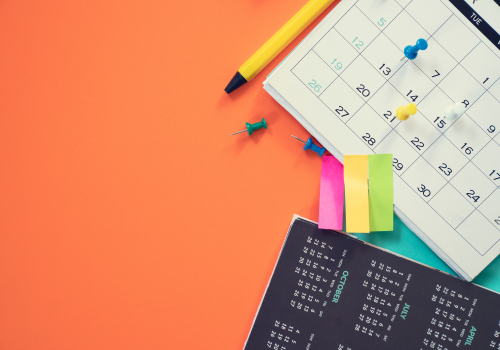Surviving the Heat
Whilst the sun (plus the vitamin D boost it provides) improves my mood, I find that the extreme heat of the summer saps my motivation. Don’t get me wrong, I will still be complaining about the weather when a frozen storm comes around this winter, but the stagnant, muggy atmosphere makes it difficult to work.
However, I’ve managed to continue my visits to the gym and regular writing patterns because of one tactic: habits. Being able to develop a decent routine, which I’m partly attributing to James Clear’s book Atomic Habits, has helped me to maintain a good work output despite being five million degrees celsius outside. Here’s a few helpful tidbits which you can apply to your studying and school work in September.
Make it easy
Starting a good habit can be very tough, no matter how much we might want to. Keeping up said good habit proves to be even more difficult until it becomes automatic. It isn’t because we are lazy or unmotivated (well, not fully!), but more about finding adapting to change difficult. Even if you had no schedule outside of classes, life follows a basic structure that eventually becomes routine before you realise.
So, how do we break the norm thus adding something positive to our lives? Make the task easy to accomplish. Let’s take revising for example: how can we get into the habit of self-studying for an hour a day Monday to Friday?
Getting out your books or notes onto a desk as soon as you arrive home means that the environment becomes a more viable learning space instantaneously. It also acts as a signal to begin revision, creating a habit before even beginning work.
Alongside, consider a cork board containing important notes on a wall in your room so you always pass by it. Anything that allows the information to be more accessible will help the process of sitting down and studying easier.
Make it difficult
On the other hand, placing our books open on a specific page won’t necessarily be enough to compete against a games console next to your chair. For me, my phone is the biggest distraction. Even thinking about it whilst writing this resulted in a quick scroll through social media.
We are more susceptible to these hindrances because they provide our brains with dopamine (a chemical) and are ultimately easier to achieve than the task at hand. So, how can we avoid them? Make it difficult to obtain them. I put my phone on the other side of the room, out of arm’s reach and thus cannot unconsciously unlock it. Whatever works to dodge these fun time wasters!
Reward yourself
The aforementioned dopamine is essentially an instant positive reaction which can be found anywhere, from food to sports. Therefore, the final step is to train our brain into a habit of rewarding ourselves once we have completed the necessary task. If you know that a large cookie or the game that has been hidden in the next room is the prize for completing an hour’s work of revision, there’s an incentive to complete it and build up the habit into a routine.

